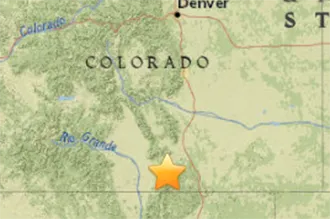
Officials Implore Consumers to Do More to Prevent Charity Fraud
Survey by AARP Foundation ElderWatch Finds Four-out-of-Five Colorado Adults Have Donated to Charity, but only about Half are Properly Vetting Before Giving
A recent survey by AARP Foundation ElderWatch found that close to 80% percent of Colorado adults ages 18 and older made a charitable donation in the last twelve months. Though many are giving, the survey also found that most consumers don’t know how to verify a charity’s legitimacy.
“I encourage the many generous people in our state who make charitable contributions to take proper precautions before donating their hard-earned money,” said Colorado Attorney General Cynthia H. Coffman. "Unfortunately, scam artists sometimes create fake charities to steal from unsuspecting donors. Anyone making a charitable donation in this day and age needs to do their homework and be certain the recipient organization is legitimate."
A report, “Listen with Your Heart, Give with Your Head,” details an AARP Foundation ElderWatch survey of 1,003 adults in Colorado about their giving behavior, knowledge of legitimate charities/protection measures, concerns and experience with charity fraud and charity regulation/donor protections.
Despite the large amount of donors and generous gifts, 46% of donors never verified the legitimacy of where they donated, 64% say they didn’t ask the fundraiser how much of their donation goes to the cause; on a positive note, 49% report always doing research about the charity. The survey found a high rate (74%) of giving by Colorado adults to a wide range of causes. Top causes mentioned included: human services (52%), health (47%) and religious (39%). Over half (54%) of Coloradans who made contributions reported giving over $100 and 28 percent have given between $100 and $500.
“Through this survey, it is clear that Colorado citizens need to be briefed on the resources available to help determine the legitimacy of a charity. Before donating, I urge people to visit www.checkthecharity.com to verify if the organization is legally authorized to solicit donations in the state,” said Colorado Secretary of State Wayne Williams.
As part of the survey, respondents were asked six true/false questions about evaluating fundraising and charities. The average score of all respondents, who have or have not given, was 3 correct out of 6, which meant 77 percent failed the quiz. Amy Nofziger of AARP Foundation ElderWatch noted that “Colorado adults are most mistaken or unsure of where in the state professional fundraisers must be registered (with the Secretary of State’s office) and how to best determine if a charitable organization is one they can trust. Other questions showed a lack of knowledge about money kept by professional fundraisers, the legitimacy of donating via social media, and the charitable-solicitation exemption from the do-not-call list.”
In addition to the lack of research and knowledge about giving, 62% of survey respondents believe that they have been solicited by a fake charity or phony fundraiser in the past 12 months. When asked where they should turn if they had concerns about a charity or fundraiser, just 16 percent indicated the correct place, either the Secretary of State or Attorney General’s office, while 28 percent indicated police or law enforcement. A full one-in-five said they were unsure of where to turn for help.
Anyone with a question about the legitimacy of a charity operating in Colorado should visit www.checkthecharity.com where they can view a charity’s detailed filings to get information about the organization’s mission, leadership, tax-exempt status, financial efficiency and the paid solicitors with whom they have contracted. The Secretary of State’s Office also publishes an annual report summarizing the results of all solicitation campaigns run by paid solicitors so citizens can see how much of a donation goes to a charity versus its paid solicitor, and how much of a charity’s overall spending is devoted to program services as compared with fundraising expenses and overhead costs.
If you believe you have been a victim of charity fraud, you can file a report here or call 1-800-222-4444. If you would like to speak with an AARP Foundation ElderWatch volunteer call 800.222.4444, option 2.
About the Survey
In January 2016, AARP engaged Alan Newman Research (ANR) to conduct a research study among the general population in Colorado concerning charity fraud. ANR completed a total of 1,003 interviews between February 29, 2016 and March 14, 2016. Respondents had to be 18 or older and living in Colorado. The total statewide sample of 1,003 respondents (574 by landline and 429 by cell phone) yields a maximum statistical error of ± 3.1% at the 95% level of confidence.
AARP Foundation ElderWatch
AARP Foundation ElderWatch Colorado is a partnership between the Colorado Attorney General’s Office and AARP Foundation whose mission is to ensure that no older adults are left to suffer, alone and in silence, at the hands of those who exploit them. The program fights the financial exploitation of older Coloradans through education and outreach, data collection, and the providing of assistance.
For more information visit http://www.stopfraudcolorado.gov/seniors/aarp-elderwatch
















